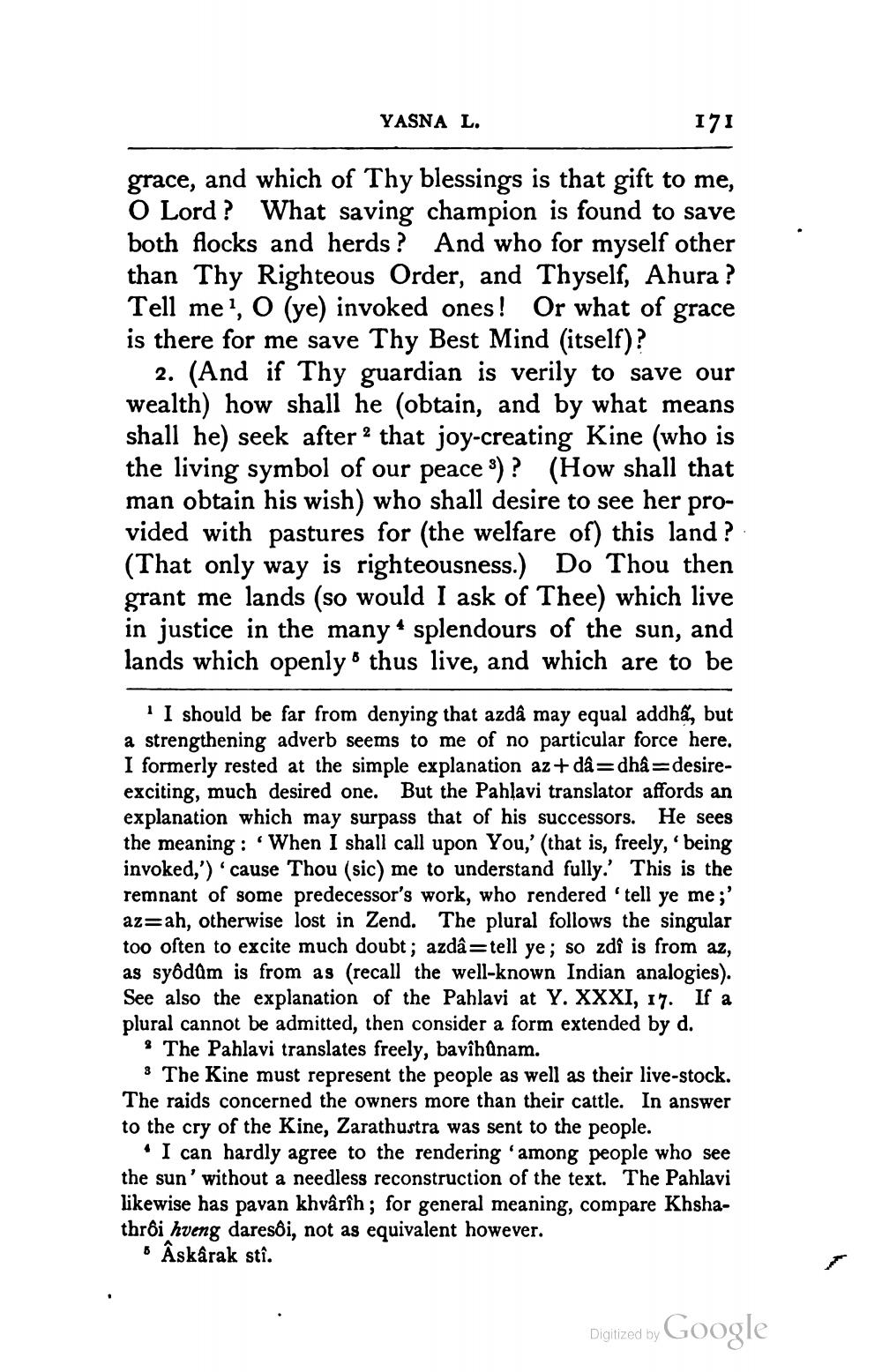________________
YASNA L.
171
grace, and which of Thy blessings is that gift to me, O Lord? What saving champion is found to save both flocks and herds ? And who for myself other than Thy Righteous Order, and Thyself, Ahura ? Tell me 1, O (ye) invoked ones! Or what of grace is there for me save Thy Best Mind (itself)?
2. (And if Thy guardian is verily to save our wealth) how shall he (obtain, and by what means shall he) seek after 2 that joy-creating Kine (who is the living symbol of our peace 3) ? (How shall that man obtain his wish) who shall desire to see her provided with pastures for (the welfare of) this land ? (That only way is righteousness.) Do Thou then grant me lands (so would I ask of Thee) which live in justice in the many + splendours of the sun, and lands which openly 8 thus live, and which are to be
'I should be far from denying that azdâ may equal addha, but a strengthening adverb seems to me of no particular force here. I formerly rested at the simple explanation az + dâ=dhâ=desireexciting, much desired one. But the Pahlavi translator affords an explanation which may surpass that of his successors. He sees the meaning : 'When I shall call upon You,' (that is, freely,' being invoked,') 'cause Thou (sic) me to understand fully.' This is the remnant of some predecessor's work, who rendered 'tell ye me;' azrah, otherwise lost in Zend. The plural follows the singular too often to excite much doubt; azdâ=tell ye; so zdi is from az, as syödäm is from as (recall the well-known Indian analogies). See also the explanation of the Pahlavi at Y. XXXI, 17. If a plural cannot be admitted, then consider a form extended by d.
$ The Pahlavi translates freely, bavîhûnam.
3 The Kine must represent the people as well as their live-stock. The raids concerned the owners more than their cattle. In answer to the cry of the Kine, Zarathustra was sent to the people.
I can hardly agree to the rendering among people who see the sun' without a needless reconstruction of the text. The Pahlavi likewise has pavan khvârîh; for general meaning, compare Khshathrôi hveng daresôi, not as equivalent however.
o Askarak stî.
Digitized by
Digitized by Google




